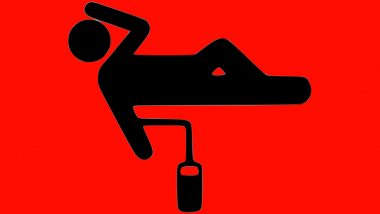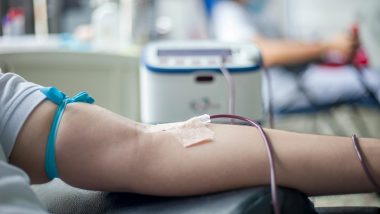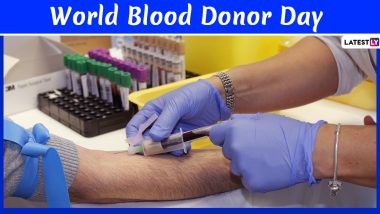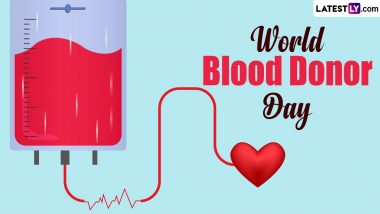Efficient medical care is impossible to come by if blood transfusion services are unavailable; this makes up the crux of the modern healthcare system. Providing effective blood and blood products that are safe and adequate to meet the needs of a patient, is an important aspect of Blood Transfusion Services(BTS). Many a times at blood donation camps, one would see only a handful of donors, whereas, there actually is a huge donor base.
The reason for this is lack of knowledge about blood donation and most frequently asked questions - "Will I be safe after donation?" or "My friend fainted will I faint too?" etc. Donors in most cases want that assurance of safety. Although much of the onus falls on the standard and quality of the Blood Bank staff, there is a lot more YOU as a donor can do to have a safe donation experience. World Blood Donor Day is on June 14. If you plan on saving lives by donating blood, ensure that you don't make these mistakes.
Mistake 1: Coming Unprepared.
Donors need to make sure he/she does some work on oneself before donating blood
- Eating something substantial 3 hours prior to donation
- Sleeping well for 6-8 hours the previous night
- Don't smoke 2 hours prior to donating blood, one must stop smoking.
- Don't consume alcohol 24 hours before you donate blood.
- Those aged between 18-65 years must weigh at least more than 45 kgs.
Mistake 2: Not Filling a Donor Form
Irrespective of where or when you donate, you need to answer some questions on the donor questionnaire form, remember:
- Every question answered honestly takes you closer to a safer blood donation.
- Be free in giving information. The data in the form is confidential; it is to ascertain your fitness for donation.
- Clarify any misunderstandings about donor selection, blood donation and screening, you might have.
- Fill up the donor questionnaire form and give consent.
Mistake 3: Skipping Medical Examination Before Donation
Don't miss important medical examinations before you donate blood. Ensure you are fit for donation.
- If your weight is more than 45 kgs, blood pressure (systolic 100-140, diastolic 60-90 mm of hg with or without medications) needs to be checked and made sure it's quantitatively in the ranges, that is safe for donation
- Meet the doctor (at the place you donate) to discuss your medical suitability for donation. Be frank, discuss your concerns, and get the seal of approval to donate
Mistake 4: Not Checking Hemoglobin Count
Make sure you are in the best of health before you donate blood.
- A sample of your blood is taken (usually by a small prick on your hand or sometimes on your arm) and is checked to see if you have required levels of Hb to donate. Many techniques are used by different blood banks, but the result must be that you have a Hb count of 12.5g/dL or more
- Be sure your Hb test is done; insist if not done
Mistake 5: Not Being Relaxed
There's no need to panic; keep your mind relaxed. You are about to do something very noble.
- A relaxed mind is your best bet for a pleasurable experience
- Relax, because the blood bag and the syringes used are new.
- Relax for you have taken sufficient pre-donation care to reach here
- Relax, for even if it is your first time, the blood bank staff do this every day!
Mistake 6: Ignoring Self Care
Self-care during donation may sound odd, but really there is a lot you can do to help yourself as you give out those drops of life.
- Lie down comfortably with muscles relaxed and legs uncrossed.
- Talk out if the prick hurts.
- Keep pressing the sponge ball, do not panic by the sight of blood
- Be assured, by doing this you are eliminating a big mistake that people make during donation.
Mistake 7: Not Resting After Blood Donation
You are inviting trouble by getting up too early after having donated blood.
- Lie down for a good 10 minutes. This will ensure normalization of blood flow in the body and ensures your brain gets enough blood
- Keep your arms folded and before you wake up, get the staff to put a band aid at the donation area. Good rest afterwards is necessary
Mistake 8: Ignoring Nourishment After Donation
Nourish yourself after each donation; your body needs it.
- Drink plenty of fluids/juices afterwards; a juice and biscuits/bananas are usually provided at the donation center
- Take them; if not your mind, your body needs them
- Refrain from heavy work; your body will feel replenished and will give you a feeling that everything is fine
Mistake 9: Avoiding Long-Term Care
Having prepared yourself before donation, taken care of yourself during donation, you are bound by continuity to take care after too.
- Make sure you eat healthy and consume lots of fluids
- Avoid smoking and alcohol for the remainder of the day
- Staying relaxed with few physically enduring activities during the day, is a must
Mistake 10: Not Sharing Your Experience
Motivate others for blood donation by sharing you experience. Make sure others get a feel of this too, encourage and guide them so they don’t make the same mistakes over and over!
(This article has been donated by Dr. Sandeep Patil, Chief Intensivist and Physician, Fortis Hospital Kalyan)
(The above story first appeared on LatestLY on Jun 13, 2018 05:22 PM IST. For more news and updates on politics, world, sports, entertainment and lifestyle, log on to our website latestly.com).













 Quickly
Quickly




















